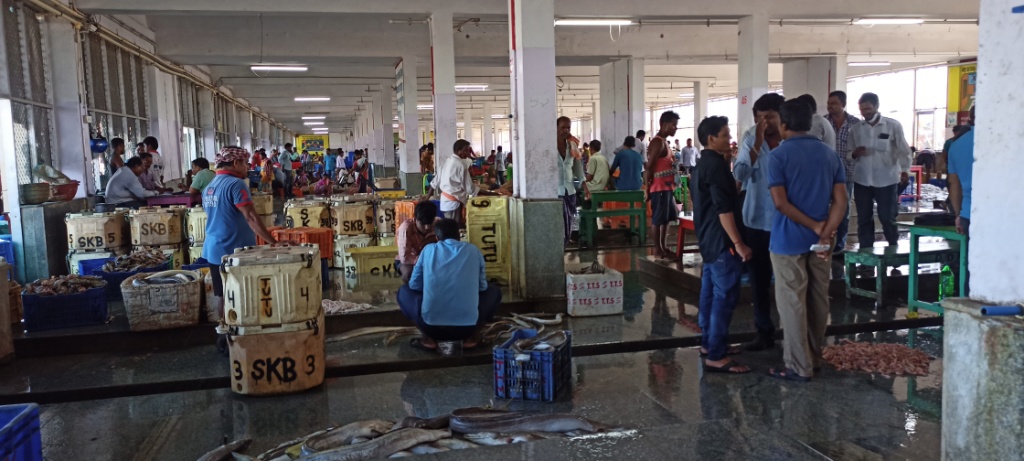Paradip: The United States of America (USA) is not keen on importing sea fish from the harbour here in Jagatsinghpur district – also all fishing harbours in the country – due to a decline in fish quality, over-processing and delays in transport. According to reports, the export of sea fish to foreign countries is one of the main sources of earnings for Odisha and other states on the eastern coast of the country. The lack of interest on part of the US to procure fish has sparked concerns among fishermen and fish producers in the port town. The fishermen earn their livelihood by catching fish from sea and exporting the stock to the US and several other countries. The US is a major seafood market.
According to the Marine Products Export Development Authority (MPEDA), a statutory body established in 1972 under the Union Ministry of Commerce and Industry, the US imported seafish worth 2,549.15 million dollars in FY 2023-24. Meanwhile, the MPEDA has flagged all the fishing harbours in the country over declining fish quality, and the prevalent practice of processing fish as well as its transport. It has asked to change the standard operating procedure (SOP) – from fish production, and processing to export. As per government reports, around 17,81,602 MT of sea fish was exported from India in FY 2023-24, and the country earned Rs 60,523,89 crore (7.38 billion US dollars) in foreign exchange from it. The issue of the plummeting demand for fish cropped up during a meeting organised by MPEDA at the fishing harbour in this port town, Wednesday.
Archiman Lahiri, deputy director of MPEDA said that the US has questions over the quality of fish exported from here. It has asked to improve the quality within the March 2025 deadline. The authorities there have warned to impose a total ban on the import of fish from here if no improvement was marked in the quality, he said. The MPEDA has urged the Odisha Marine Fish Producers’ Association (OMFPA), the apex body of fishing trawlers and fish producers at Paradip, to reduce the time consumed between the processing of fish and its transport. Sources said on average, a fishing boat takes at least a week’s time to return to the harbour with the catch. The fish caught on daily basis are kept in cold storage to save them from rotting. A fisherman said ideally around 1,200 gm of ice is required to refrigerate a kilogram of fish. However, most of the fishermen are, instead, using only 700-800 gm of ice for refrigeration of a kilo of fish. The stock in the boat’s cold storage is emptied after the boat reaches the harbour before it is taken to the auction hall where various types of fish are segregated and auctioned.
Agents from various export firms procure fish during the auction and load the consignments in their respective vehicles for Bhubaneswar where the processing plant is located. Workers at the plant remove shells from prawns and shrimps (main export items) which are then kept in cold storage before they are exported. The entire process, from procurement to export, takes at least eight to 14 hours, Manas Padhiari, an agent, said. “This prolonged time period, however, results in a decline in the quality of fish. As a result, the Food Safety and Inspection Service (FSIS) of the US government is rejecting the consignments after the arrival of fish in their country following inspection,” he said. Lahiri meanwhile, suggested the setting up of a processing plant right inside the fishing harbour in the port town to reduce the time between processing and transport. The price of the fish will be higher if its quality remains intact and unchanged, he said. OMFPA president Srikant Parida said that the Fisheries department of the state government or at the Centre should take steps to establish a processing plant in Paradip.
